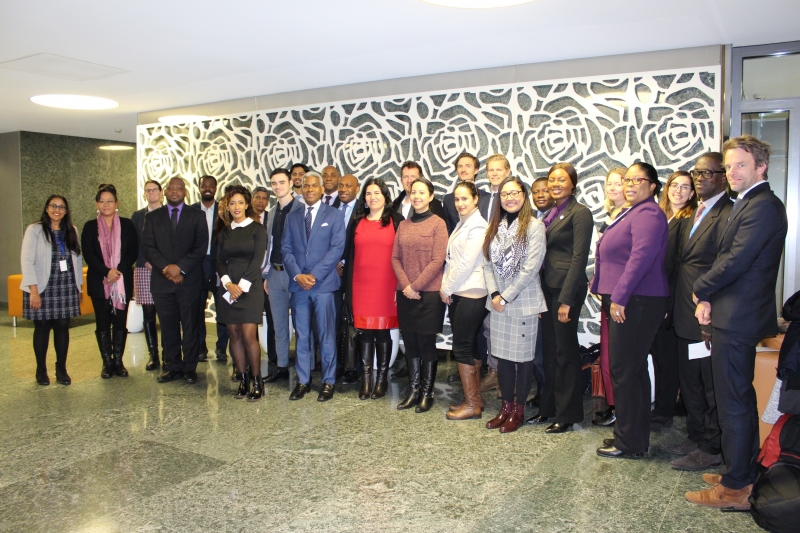Treaty Body reporting needs to be streamlined and more accessible to Small States
Yesterday, the CTI, in partnership with the Commonwealth Secretariat and the Universal Rights Group, held a closed discussion on “Exploring ways of easing the treaty body reporting burden on Small States” at the Commonwealth Small States Office in Geneva. It was co-sponsored by the Permanent Missions of Costa Rica and Switzerland, as two of the countries leading the 2020 Treaty Body reform process and attended by representatives of the Permanent Missions to the UN in Geneva of 12 Small States*, along with representation from the CTI Core States, Costa Rica, Switzerland and the United Kingdom.

CTI convened this meeting in response in part to the fact that reporting to the human rights treaty bodies is regularly mentioned as the number one deterrent to ratifying additional human rights treaties, including for non-States-parties to UNCAT, and is clearly an unintended consequence of the growing reporting system.
The first half of the discussion explored State good practices as well as challenges to reporting. Participating States shared many different ways they have approached reporting that have worked domestically. Some of the good practices mentioned included the creation of specific Ministries of Human Rights or human rights units within the Ministry of Foreign Affairs or the Prime Minister’s Office, the establishment of permanent inter-ministerial committees (or “National Mechanisms for Implementation, Reporting and Follow-up” (NMIRFs)), as well as the use of electronic databases such as SIMORE to monitor, compile and keep track of recommendations received from the UN human rights system. The States agreed that reporting was an important part of the human rights system, reminding each other of its purpose to support States to meet their human rights commitments and to deliver concrete changes and improvements for their citizens on the ground.
At the same time, despite their best efforts, the reality expressed that reporting presents real challenges to small States. Many challenges were shared across regions and included:
- the lack of financial and human capacity to absorb and respond to the high number of treaty body reports and recommendations, as well as the costs of participation in Geneva-based reviews, particularly as States ratify additional human rights treaties;
- the collection and recording of disaggregated data;
- the difficulty of navigating the different technical reporting formats and working methods of different treaty bodies, and the lack of coordination in the scheduling of reports by different treaty bodies.
Going forward, the participating States hoped the system could become more accessible to Small States. A range of recommendations were suggested, which focused on improving coherence, simplifying even further the reporting process, and the need for predictability across the treaty bodies. These recommendations and suggestions will be synthesized by the CTI Secretariat in a non-paper, to be shared with the members of the UN Committee against Torture ahead of the CTI’s next annual briefing in May 2019 and also will be fed into the 2020 Treaty Body Review process. The non-paper will aim to capture some of the constraints, challenges and recommendations put forward by States, without referring to any individual views.
* Participating small States included: The Bahamas, Barbados, Dominican Republic, Fiji (also a CTI Core State), The Gambia, Haiti, Malawi, Maldives, Marshall Islands, Mauritius, Solomon Islands and Vanuatu.
The concept note of the event is available here.
The programme of the event is available here.
For more information on Treaty Body reporting, see CTI’s Implementation Tool on Reporting to the UN Committee against Torture.
For States interested in how the CTI can offer support, please contact the CTI Secretariat at info@cti2024.org.

